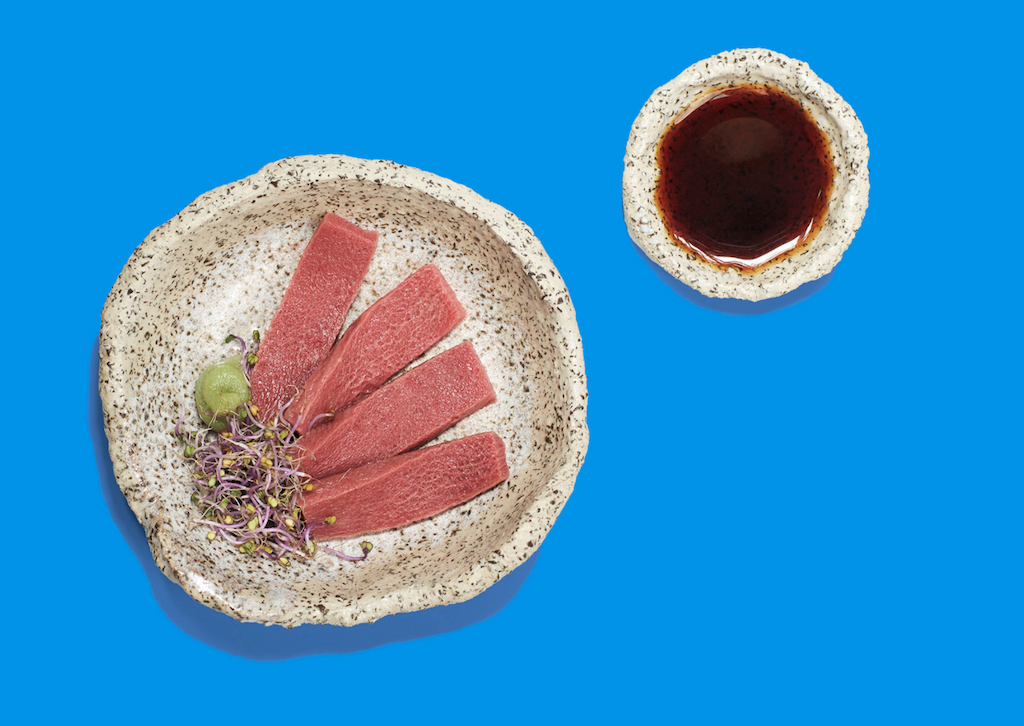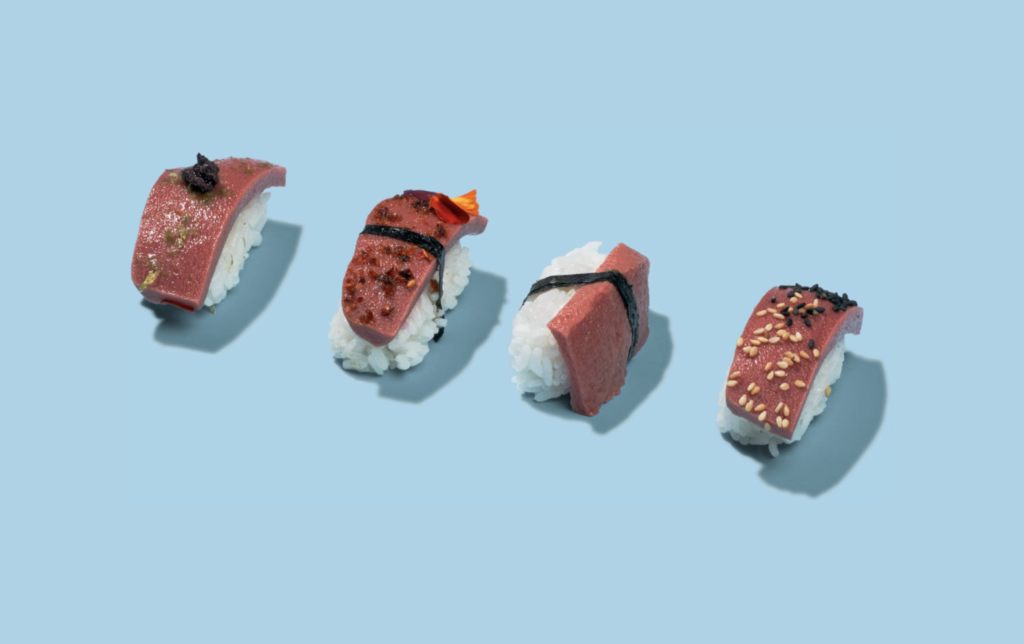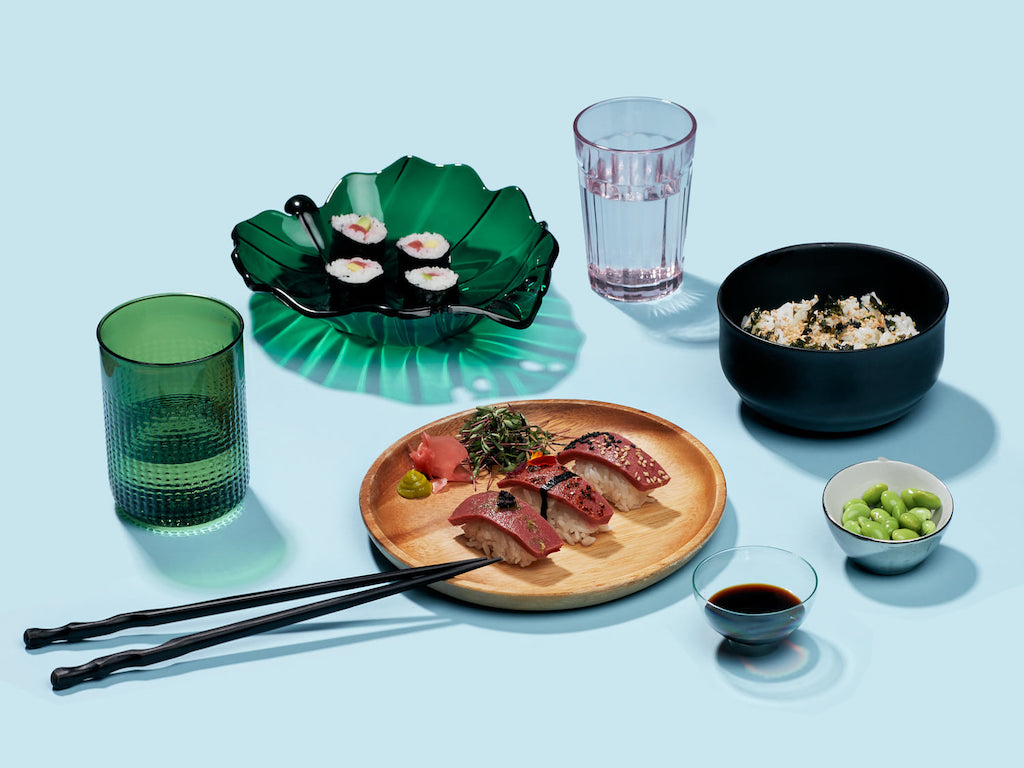3 Mins Read
San Francisco-based food tech Kuleana is developing sushi-grade plant-based fish alternatives, from bluefin tuna to salmon. Seeing a gap in the market when it comes to next-level substitutes of cuts of raw fish, the startup coming from Y Combinator’s summer cohort hopes that its vegan-friendly seafood analogues can help disrupt the traditional seafood industry and its associated negative environmental impacts.
Founded in 2019 by Jacek Prus and Sònia Hurtado, Kuleana is a food tech developing vegan alternatives to seafood. But it isn’t just any type of seafood Kuleana is focused on. While some plant-based seafood startups such as Good Catch and Hooked have launched vegan versions of shredded deconstructed fish, Prus and Hurtado decided to create analogues for cuts of sushi-grade raw fish after seeing a gap in the market.
“We saw a huge white space when it comes to seafood alternatives,” co-founder and CSO Hurtado told Green Queen. “People love raw fish and since it is such a unique texture we see it as a good challenge to create something new.”
“We found there was a huge demand for raw fish and after doing some research, we didn’t find many good alternatives and thus we decided to take the challenge and developed Kuleana Akami,” added Hurtado.

People love raw fish and since it is such a unique texture we see it as a good challenge to create something new.
Sònia Hurtado, Co-Founder & CSO of Kuleana
Kuleana Akami is the startup’s first product, a 100% vegan-friendly bluefin tuna analogue. Using its proprietary novel technology, Kuleana is able to recreate the texture and fleshy taste of the meat from the upper back of the bluefin, which is widely regarded as a staple menu item at most sushi restaurants.
“Kuleana Akami is made of micro and macro-algae, pea protein, DHA-rich algae oil, fermented koji iron and plant fibers, amongst other plant-based ingredients,” explained Hurtado.
Given that most raw seafood is eaten outside of home, Kuleana hopes to commercialise its product through food service by partnering with sushi restaurants across the country by the end of this year. After undergoing two successful taste tests in San Francisco and Barcelona, the company has reportedly already received intent for orders amounting to over 50,000 pounds of Kuleana Akami.

For the co-founders, the ultimate goal is to put an end to the traditional unsustainable seafood industry. “We are really concerned about how we’ve been treating our oceans, from plastic pollution to crude fishing methods that unnecessarily kill many animals as bycatch or through habitat destruction,” the co-founders shared with Green Queen.
Kuleana Akami is made of micro and macro-algae, pea protein, DHA-rich algae oil, fermented koji iron and plant fibers, amongst other plant-based ingredients.
Sònia Hurtado, Co-Founder & CSO of Kuleana
“We were specifically drawn to Blue Fin tuna, as it is often a critically endangered species, and an important contribution to the marine ecosystem as an apex predator.”
Looking ahead, the startup wants to develop more sushi-grade fish alternatives that can give consumers the taste and texture they desire in raw fish, without the environmental impact, nor the health and ethical concerns associated with conventional seafood.
“We have plans to launch a salmon product in the future, at the same time we’ll continue doing R&D both in the food tech and biotech sides of our company,” said Hurtado. “We’re on a mission to solve the challenge of creating complex texture in the meat analogue industry.”
All images courtesy of Kuleana.




